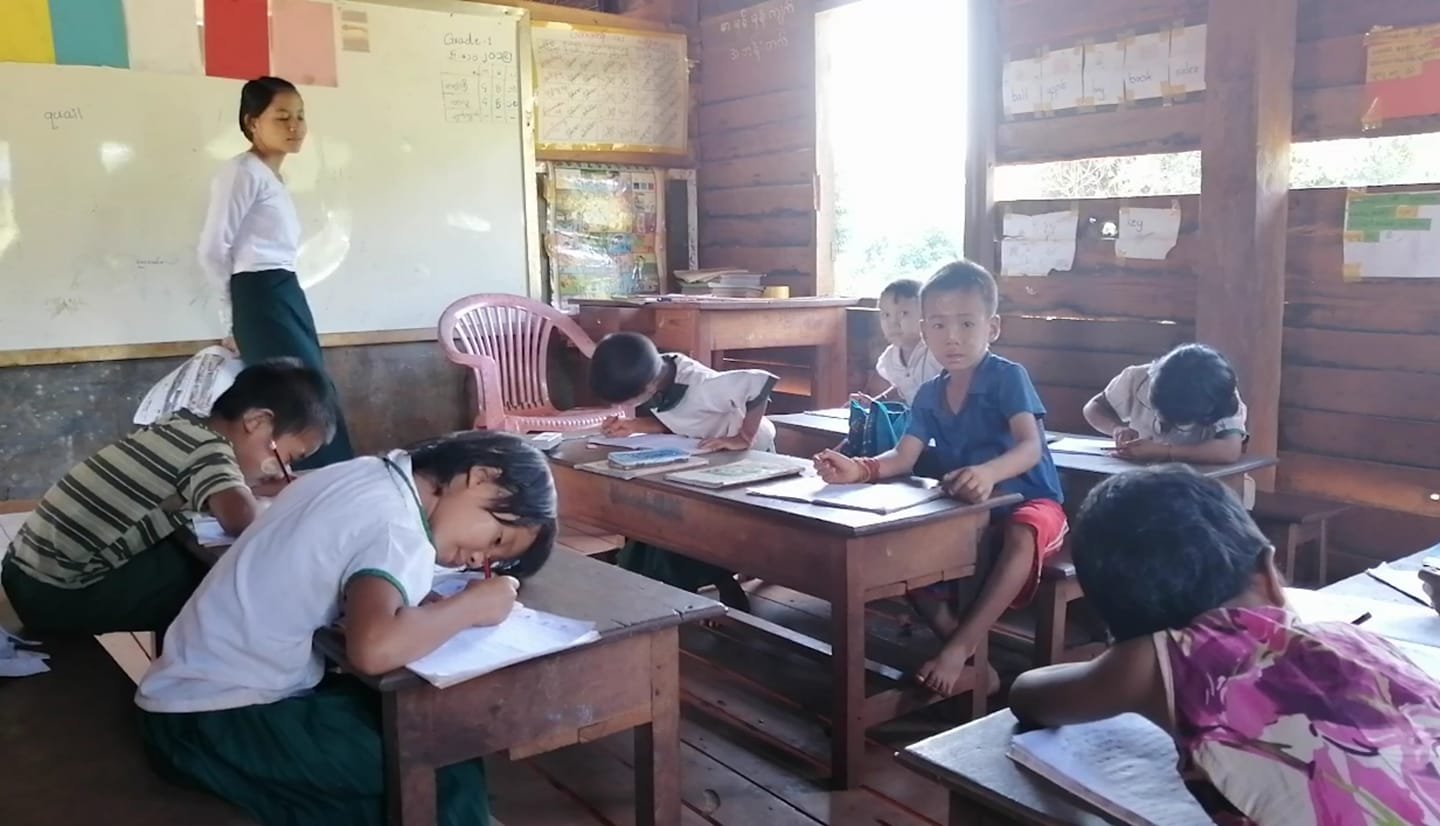By Kantarawaddy Times
The government needs to do more to help teachers of ethnic languages, said a member of a Kayan party.
If higher wages are offered for teachers and there’s more classes ethnic language fluency would increase, said Maung Lio, from the Kayan National Party. “Currently, there’s only one ethnic language class offered each week.”
There are 156 ethnic language teachers employed by the government in 275 schools in Kayah State. They’re paid 4,800 Kyat (about US$3) a day to teach language classes that fall outside of regular school hours.
It’s difficult for children to learn because there are few books available in ethnic languages, said Khun Htet from the Kayan Literature and Culture Association. “Children have notebooks to write in but they have little to read.”
Because ethnic language classes must be taught after school ends the incentive to learn is lower resulting in reduced enrollment, Khun Htet said.
“I demand for more books and other learning materials for classes. Teachers should also receive training. They need at least ten days of teacher training.”
Curriculum for classes is derived from Burmese textbooks and translated to ethnic languages. Khun Htet wants to see more locally produced language books written with local customs and culture in mind.
Many different ethnic groups live in Kayah State. Some of these include Karenni, Kayaw, Kaw Yaw (Monu Monaw), Yin Talae, Gaybar, Shan, Pa-O, Lisu, Karen, and Bamar.


